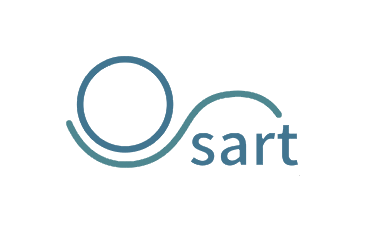Often, couples have been successful with their fertility treatments and donate excess embryos to ICRM after their family is completed. Other couples suffering from infertility can receive these embryos and undergo a frozen embryo transfer procedure. ICRM does not charge for the embryos, only the frozen embryo transfer cycle. The embryo donation recipient program at ICRM is an anonymous program. The embryo donation recipient program offers a lower cost option to couples suffering from infertility. Intended parents can review the medical history of the embryos prior to selecting them. After the intended parents have selected their desired embryos, they can proceed with a frozen embryo transfer cycle. Embryo cryopreservation is a routine practice within advanced reproductive technology (ART) clinics.
During a frozen embryo transfer cycle, the uterus is prepared with both estrogen and progesterone hormones to make the uterus receptive. This hormonal preparation typically takes 3-4 weeks of time. During this 3-4 week time period, both hormone levels and the uterine lining are monitored to ensure optimal uterine receptivity. Cryopreserved embryos are then thawed and transferred back into the uterus. Approximately 80% of embryos typically will survive the freeze-thaw process. Embryos are dehydrated prior to freezing to minimize ice crystal formation in the embryo which causes intracellular damage. Pregnancy testing typically occurs 8 and 10 days after the embryo transfer. If high quality embryo(s) are transferred, approximately 40% pregnancy rate is achieved per frozen embryo transfer. Embryo cryopreservation techniques and capabilities have become an increasingly important therapeutic strategy in assisted reproduction. About 20% of all offspring born worldwide from IVF cycles are from embryo cryopreservation and frozen embryo transfer procedures.
Meet our Collaborating Partner Building Blocks Agency (BBA). BBA is in charge of the embryos that are waiting for recipients!
Embryo Donation & Frozen Embryo Transfer Cycle

How Embryo Donation Works
Often, couples who have successfully completed their fertility treatments donate their excess embryos to ICRM. Other couples suffering from infertility can receive these embryos through our anonymous embryo donation recipient program. At ICRM, we do not charge for the embryos themselves; we only charge for the associated frozen embryo transfer cycle. This program offers a cost-effective option for couples struggling with infertility.
Intended parents can review the medical history of available embryos before making their selection. Once chosen, they can proceed with a frozen embryo transfer cycle.
Partnering with Building Blocks Agency (BBA)
We are proud to collaborate with Building Blocks Agency (BBA), which manages our embryo donation process. BBA oversees the available embryos, ensuring that intended parents have access to comprehensive medical histories and support throughout the selection process. This partnership enhances the experience for both donors and recipients, fostering a compassionate community focused on family building.
The Frozen Embryo Transfer Process
During a frozen embryo transfer cycle, the uterus is prepared through hormonal treatment with estrogen and progesterone to ensure receptivity. This preparation, which typically takes 3-4 weeks, is crucial for creating an optimal environment for embryo implantation. Hormone levels and uterine lining thickness are closely monitored during this period to ensure the best possible conditions for a successful pregnancy.
Once the uterus is ready, cryopreserved embryos are thawed and transferred back into the uterus. Approximately 80% of embryos survive the freeze-thaw process, as they are dehydrated prior to freezing to minimize ice crystal formation, thus reducing intracellular damage.
Our program boasts a high success rate, with about a 40% pregnancy rate per frozen embryo transfer. This is made possible by advances in embryo cryopreservation techniques, which have made this an increasingly effective option in assisted reproductive technology. Approximately 20% of all offspring born worldwide are from IVF cycles resulting from embryo cryopreservation and frozen embryo transfer procedures. These statistics are a testament to the hope and promise that our program offers.
Why Choose ICRM for Your Embryo Donation Journey?

Expert Care

Collaborative Approach

SART-Certified with High Success Rates
Take the Next Step
To learn more about our embryo donation program, schedule a free telehealth consultation with our clinicians today. We’re happy to walk you through the process and answer any questions you have!






